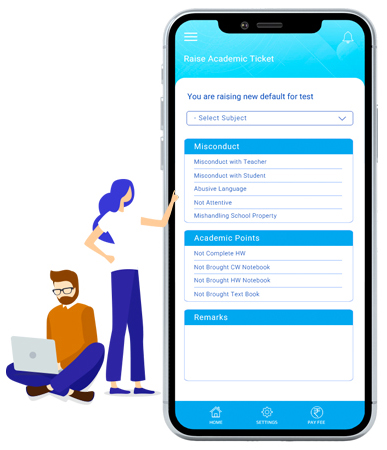Academic Management is a comprehensive module within a School Management System (SMS) or School ERP that focuses on enhancing the academic processes, communication, and administrative efficiency within an educational institution.
Here are key features and benefits of Academic Management:
Features
1. Communication Tools
- Provides communication channels for teachers, students, and parents/guardians to facilitate effective communication and collaboration.
2. Academic Planning
- Supports the planning and scheduling of academic activities, including lessons, exams, and assessments.
3. Curriculum Management
- Helps in managing the curriculum, course content, and learning materials for different subjects and classes.
4. Assignment and Homework Management
- Streamlines the assignment and homework creation, submission, and tracking processes.
5. Assessment and Grading
- Offers tools for creating assessments, grading assignments, and generating report cards.
6. Timetable Management
- Allows for the creation and management of class timetables and schedules.
7. Progress Tracking
- Monitors student progress, attendance, and performance, allowing for early intervention.
8. Student Records
- Maintains comprehensive records of student information, including academic achievements, attendance, and behavior.
Benefits
- Improved Communication: Enhances communication and collaboration among teachers, students, and parents/guardians, fostering a supportive learning environment.
- Reduced Administrative Tasks: Streamlines administrative processes, reducing paperwork and manual data entry.
- Efficiency: Helps educators and administrators efficiently manage academic activities, schedules, and resources.
- Transparency: Provides transparency by offering access to academic information, grades, and progress reports to all stakeholders.
- Data-Driven Decision-Making: Offers data and insights for informed decision-making and intervention strategies.
- Resource Management: Assists in managing learning resources, textbooks, and teaching materials effectively.
- Parental Involvement: Encourages parents/guardians to be actively involved in their child's education through regular updates and progress reports.
- Student Engagement: Enhances student engagement by providing access to assignments, homework, and resources online.
- Academic Planning: Supports academic planning and curriculum development in line with educational standards and goals.
An Academic Management module plays a pivotal role in promoting effective teaching and learning, reducing administrative burdens, and fostering better communication among all stakeholders in an educational institution. It empowers educators to focus on what matters most—student success.



